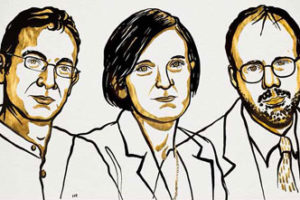It was supposed to be a new dawn, the moment when Jeremy Corbyn, Britain’s most left-wing political leader in a generation or more, proclaimed the start of the most ambitious economic transformation the nation had seen since the end of World War II.
Instead, a sombre Corbyn was seen hugging his allies in the cafeteria of a sports and recreation facility in north London in the early hours of Friday, on his way to announce that his quest for power was over.
Like other left-wing parties in western Europe, Labour is once again in crisis, scrambling for answers to seismic shifts in electoral politics. Labour’s embrace of the leftist vision of Corbyn — once seen by many members as the party’s salvation — has led to electoral catastrophe.
The question now is whether the party changes course and lurches to the centre ground or elects a younger leader in Corbyn’s image, even after he was so thoroughly rejected by the voters Thursday. Central to that conundrum is whether the voters rejected Corbyn himself, or his message.
How is it that a man who was embraced as a beaming, grandfatherly character in the 2017 general election, making gains for Labour, would just two years later be saddled with some of the lowest approval ratings of any opposition leader in polling history?
This time around he doubled down on his anti-austerity pitch of 2017, promising to shower money on social programs and the health service, while nationalising many utilities and providing free broadband. But, rather than exciting people, he seemed to lose them, many doubting his credibility.
His long-standing and, to many supporters, unfathomable refusal to forcefully tackle anti-Semitism in the party or, in a TV interview, to apologise, dogged his campaign and poisoned his image. He came to be seen as ineffectual, analysts said.
That made him easy prey for Prime Minister Boris Johnson and the nation’s predominantly right-wing press, all painting Corbyn as a dangerous radical who would lead the nation to economic ruin.
And there was Brexit, the dominant issue but one that Corbyn, as a longtime euro-sceptic himself, never could quite come to grips with. Trying to appeal to both sides of his badly divided party, he managed to satisfy no one, by refusing to say which side he was on. To some voters it was perhaps the most critical blow to his credibility.
“He failed to lead a proper campaign,” Sarah Rose, a 43-year-old sociologist, said of Corbyn as she walked her dogs in Clissold Park in the area Corbyn represents. “He failed to tackle accusations of anti-Semitism, and he failed to have a sensible position on Brexit. It’s devastating.”
Speaking early Friday, Corbyn confirmed that he “will not lead the party in any future general election campaign.” His moment of political pathos unfolded, incongruously, on a stage alongside a novelty election candidate called Nick the Incredible Flying Brick, who wore a large yellow and black hat.
What Corbyn said next — that he would stay on during a period of “reflection” — sets the scene for a ferocious battle over the succession and the soul of a party that was crushed by the Conservatives and has now lost four elections in succession.
“This theme of having a period of reflection isn’t to allow people to reflect, it is the very opposite,” said Steven Fielding, professor of political history at the University of Nottingham, describing the tactics of Corbyn’s close-knit allies.
“They want a period of pause after the shock of this defeat to persuade members of their narrative that they need to keep on in the same direction,” he said.
Corbyn promised to stand aside “in the early part of next year sometime,” perhaps sensing that the party’s lawmakers might force a leadership election if he hangs around too long.
Many critics, who were never reconciled to his leadership, feel vindicated. One of those, veteran Labour lawmaker Margaret Hodge, reacted swiftly to Corbyn’s speech.
“Corbyn talking about a period of ‘reflection,’” she wrote on Twitter, before adding tartly: “I’ve reflected. You failed. Please stand down.”
No successor will have as much baggage as Corbyn but the fight to succeed him will be critical nonetheless.
Corbyn’s ally, the shadow chancellor, John McDonnell, has ruled himself out as a contender and, unless he changes his mind, the “Corbynista” candidate will likely be Rebecca Long-Bailey. A loyalist, she was raised in Manchester and worked in a pawnshop, call centres, a furniture factory and as a postal worker before eventually studying to become a solicitor.
So bad was Labour’s defeat that another Corbyn ally and possible successor, Laura Pidcock, lost her seat in the electoral meltdown.
But more centrist candidates will probably include Keir Starmer, who speaks for Labour on Brexit, and Emily Thornberry, the party’s main speaker on foreign affairs. Thornberry, though once an ally of Corbyn, took a more anti-Brexit stance than he did, as did Starmer. Both were largely sidelined in the election campaign. Other contenders could be Angela Rayner and Jess Phillips.
Labour Party members will ultimately choose the next leader, and many are loyal to Corbyn and his economic agenda, though a majority oppose Brexit. And in a survey among them earlier this year on potential successors, they rated Starmer as the top contender, with twice as much support as Long-Bailey.
It is not surprising then, that Corbyn’s allies are already blaming Thursday’s defeat on Brexit, arguing that Labour lost in the north and the middle of the country because it was offering a second Brexit referendum under pressure from remainers, like Starmer.
Ian Lavery, the party chairman, who wants to proceed with Brexit and is an ally of Corbyn, argued that the cause of the defeat was “not Jeremy Corbyn, it is Brexit and ignoring democracy.”
Yet there are deeper structural reasons for Labour’s loss of support in the parts of the north and middle of the country that defected to the Tories.
“Brexit has accelerated a massive change in voting behaviour, but not started it,” according to Peter Kellner, a political analyst and former president of YouGov, a polling organisation.
He noted that, until the mid-1980s, around 80% of Labour’s support came from manual workers and their families. With the decline of the big industries, coal mines, shipyards and steelworks, by 2010 white-collar Labour voters outnumbered blue-collar voters.
It will be up to the next leader to build a new coalition of support and decide whether to shift to the political centre or try to keep alive Corbyn’s agenda, despite the crushing defeat.
Fielding said that if the pro-Corbyn faction feels its grip on the party is weakening, things could get nasty.
“They were able to put to the people the most radical manifesto since World War II. It is their historic opportunity and they are not going to let it go,” he said.






















